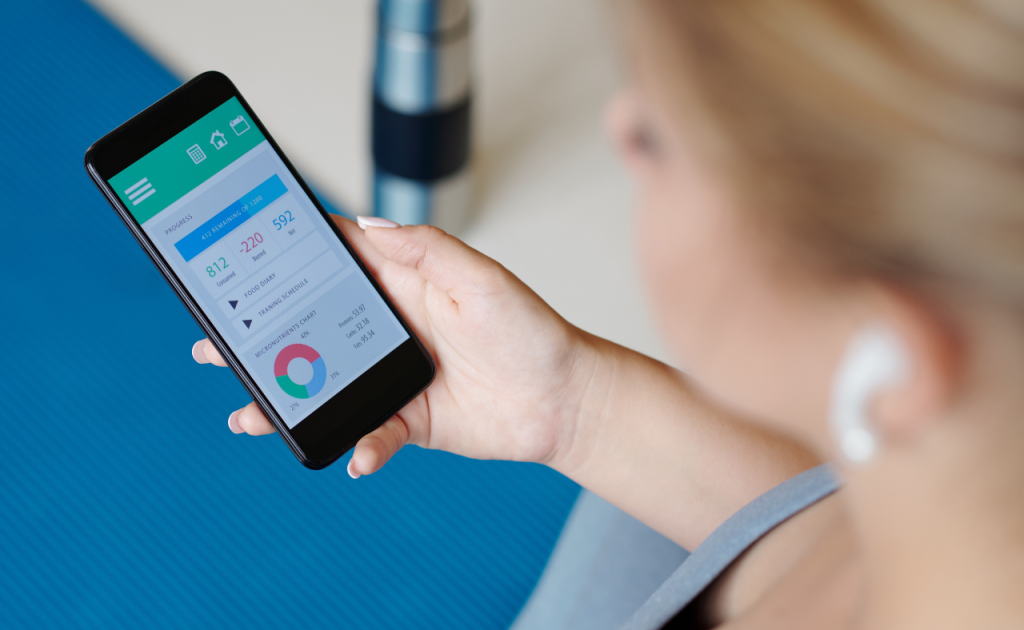Tracking the calories you burn during your workouts can be a game-changer in your fitness journey. It helps you understand the efficiency of your exercise routine, enables you to adjust your workout plans, and provides the motivation needed to reach your fitness goals. Let’s explore various methods to track your workout calories, discuss the benefits of monitoring your calorie expenditure, and provide tips for achieving accurate results.
Why Tracking Calories Burned Matters
Understanding Energy Balance
At its core, tracking calories burned is about understanding your energy balance, which is the relationship between calories consumed and calories expended. This balance is crucial for achieving any fitness goal, whether it’s weight loss, muscle gain, or maintenance. Knowing how many calories you burn during workouts allows you to make informed decisions about your diet and exercise routines, ensuring that you’re on the right path to reaching your goals.
Motivation and Accountability
Seeing the number of calories you’ve burned after a tough workout can be incredibly motivating. It provides a tangible measure of your effort and progress, pushing you to keep going even when the going gets tough. Tracking calories burned also adds a layer of accountability, helping you stay committed to your fitness routine and make necessary adjustments if you’re not seeing the results you desire.
Personalized Fitness Journey
Every individual’s fitness journey is unique, and tracking calories burned helps tailor your approach to suit your personal needs and goals. By understanding how different activities affect your calorie expenditure, you can design a workout plan that aligns with your objectives and preferences. This personalized approach can lead to more effective and enjoyable workouts, ultimately contributing to long-term success.
Methods to Track Calories Burned

Fitness Trackers and Wearables
Smartwatches and Fitness Bands
Fitness trackers and wearables have revolutionized the way we track workout calories burned. Devices like the Apple Watch, Fitbit, and Garmin are equipped with advanced sensors that monitor your heart rate, steps, and activity levels to estimate calories burned. These devices offer a convenient and accessible way to track your progress, providing real-time data that can be used to fine-tune your workouts.
Fitness trackers calculate calories burned by considering factors such as your age, weight, heart rate, and activity type. While these estimates may not be 100% accurate, they offer a reliable baseline for understanding your energy expenditure. The ease of use and continuous monitoring provided by wearables make them a popular choice for those looking to track their calorie burn.
Benefits of Wearables
- Convenience: Wearables are easy to use and provide continuous monitoring, allowing you to track your calories burned throughout the day.
- Motivation: Real-time data can motivate you to stay active and reach your fitness goals, providing instant feedback on your progress.
- Insight: Detailed reports and analytics help you understand your workout patterns, enabling you to make informed decisions about your exercise routine.
Mobile Apps
Popular Fitness Apps
There are numerous mobile apps available that help you track calories burned during workouts. Apps like MyFitnessPal, Strava, and MapMyFitness allow you to log activities and provide estimates of calories burned based on your input. Many of these apps integrate with wearables, offering a comprehensive view of your fitness data.
Mobile apps offer flexibility, allowing you to track a wide range of activities, from running and cycling to yoga and strength training. They often include features like goal setting, community support, and nutrition tracking, making them valuable tools for managing your overall health and fitness.
Benefits of Fitness Apps
- Accessibility: Apps are available on most smartphones, making them easy to use and convenient for on-the-go tracking.
- Versatility: Track various activities and sync with other fitness devices to get a complete picture of your calorie expenditure.
- Community: Connect with other users for support and motivation, sharing your progress and challenges with a like-minded community.
Online Calculators

How They Work
Online calculators offer a quick and easy way to estimate calories burned during specific activities. By inputting details such as your weight, activity type, and duration, these calculators provide an estimate of calories burned. While not as personalized as wearables or apps, they offer a simple solution for those without access to advanced technology.
Online calculators are best suited for estimating calorie burn for individual activities rather than continuous monitoring. They are a useful tool for understanding the impact of different exercises and can help you choose workouts that align with your calorie-burning goals.
Benefits of Online Calculators
- Simplicity: Easy to use without the need for technology or devices, providing quick estimates of calories burned.
- Quick Estimates: Get immediate results for various activities, allowing you to assess the effectiveness of different workouts.
- No Cost: Most online calculators are free to use, making them accessible to anyone looking to track their calorie burn.
Heart Rate Monitors
Tracking Intensity
Heart rate monitors are another effective method for tracking calories burned. By measuring your heart rate during exercise, these devices provide insight into the intensity of your workouts. Higher heart rates generally indicate higher calorie burn, making heart rate monitors valuable for understanding the effectiveness of your exercise routine.
Heart rate monitors can be standalone devices or integrated into wearables. They offer a more personalized approach to tracking calorie burn, as they consider your individual heart rate response to different activities.
Benefits of Heart Rate Monitors
- Accuracy: Provides a more personalized estimate of calories burned by accounting for your unique heart rate response.
- Intensity Monitoring: Helps you gauge workout intensity and adjust as needed, ensuring that you’re working at the right level for your goals.
- Adaptability: Suitable for various types of exercise, from cardio to strength training, providing valuable data for optimizing your workouts.
Treadmills and Cardio Machines
Built-in Calorie Counters
Many treadmills, ellipticals, and stationary bikes come equipped with built-in calorie counters. These machines use pre-programmed algorithms based on average user data to estimate calories burned. While not as accurate as personalized devices, they offer a convenient way to track calorie burn during specific workouts.
Built-in calorie counters provide immediate feedback, allowing you to adjust your workout intensity or duration in real time. However, it’s important to note that these estimates are based on averages and may not reflect your unique energy expenditure.
Benefits of Cardio Machines
- Convenience: Provides instant feedback during workouts, allowing you to make real-time adjustments to your exercise routine.
- Motivation: Helps you stay focused on your calorie-burning goals, providing a tangible measure of your progress.
- Ease of Use: Requires no additional setup or technology, making it easy to track calories burned during cardio workouts.
Tips for Accurate Tracking

Understanding Basal Metabolic Rate (BMR)
To accurately track calories burned, it’s essential to understand your Basal Metabolic Rate (BMR). BMR represents the number of calories your body needs to maintain basic physiological functions at rest. By calculating your BMR, you can better estimate your total daily energy expenditure and make informed decisions about your diet and exercise routine.
There are various methods to calculate BMR, including the Harris-Benedict Equation and online calculators. Once you know your BMR, you can add the calories burned through physical activity to determine your total daily calorie needs.
Considering Variables
Several factors influence calorie burn, including age, weight, fitness level, and exercise intensity. When tracking calories, it’s important to consider these variables for accurate estimates. Wearables and apps often account for these factors, but it’s crucial to input accurate data to ensure reliable results.
Remember that calorie burn can vary between individuals, even for the same activity. Your unique physiology, metabolism, and fitness level all play a role in determining your energy expenditure. Be mindful of these factors when interpreting calorie estimates and making adjustments to your workout routine.
Adjusting for Accuracy
Tracking calories burned is not an exact science. It’s essential to view estimates as a guide rather than an absolute measure. Use the information to inform your fitness decisions, but remain flexible and open to adjustments. If you find that your calorie burn estimates don’t align with your fitness goals, consider experimenting with different workout intensities or durations.
Listening to Your Body
While tracking calories is a valuable tool, it’s important not to become overly reliant on numbers. Listen to your body and pay attention to how you feel during and after workouts. Energy levels, mood, and physical well-being are also indicators of workout effectiveness. Use calorie tracking as one component of a holistic approach to fitness, focusing on overall health and well-being.
Benefits of Tracking Calories Burned
Improved Fitness Goals
Tracking calories burned helps you set realistic and achievable fitness goals. By understanding how different activities impact your energy expenditure, you can tailor your workouts to align with your objectives. Whether you’re aiming for weight loss, muscle gain, or improved cardiovascular health, calorie tracking provides the data needed to make informed decisions and optimize your fitness plan.
Enhanced Motivation
Seeing tangible results in the form of calories burned can boost motivation and commitment to your fitness journey. Tracking progress over time allows you to celebrate achievements and stay focused on your goals. The sense of accomplishment that comes from reaching calorie-burning milestones can inspire you to continue pushing forward and striving for success.
Better Nutritional Choices
Understanding your energy expenditure helps you make more informed dietary choices. By knowing how many calories you burn during workouts, you can better balance your energy intake to support your fitness goals. This balance is crucial for achieving and maintaining a healthy weight, preventing overtraining, and ensuring optimal performance.
Accountability and Progress
Tracking calories burned adds an element of accountability to your fitness routine. It allows you to monitor your progress, identify areas for improvement, and make necessary adjustments to stay on track. By regularly reviewing your calorie burn data, you can ensure that your workouts remain effective and aligned with your long-term goals.
Final Thoughts
Tracking workout calories burned is a valuable tool for enhancing your fitness journey. By understanding your energy expenditure, you can make informed decisions about your workouts, nutrition, and overall health. Whether you choose to use wear
ables, apps, online calculators, or heart rate monitors, the key is to find a method that works for you and supports your fitness goals.
Remember that calorie tracking is just one piece of the puzzle. Focus on creating a balanced and sustainable fitness routine that prioritizes overall health and well-being. Listen to your body, stay motivated, and remain open to adjustments as you progress on your fitness journey.
With dedication, consistency, and the right tools, you can harness the power of calorie tracking to achieve your fitness goals and unlock your full potential. So, lace up your sneakers, track your progress, and take charge of your health and fitness today!







